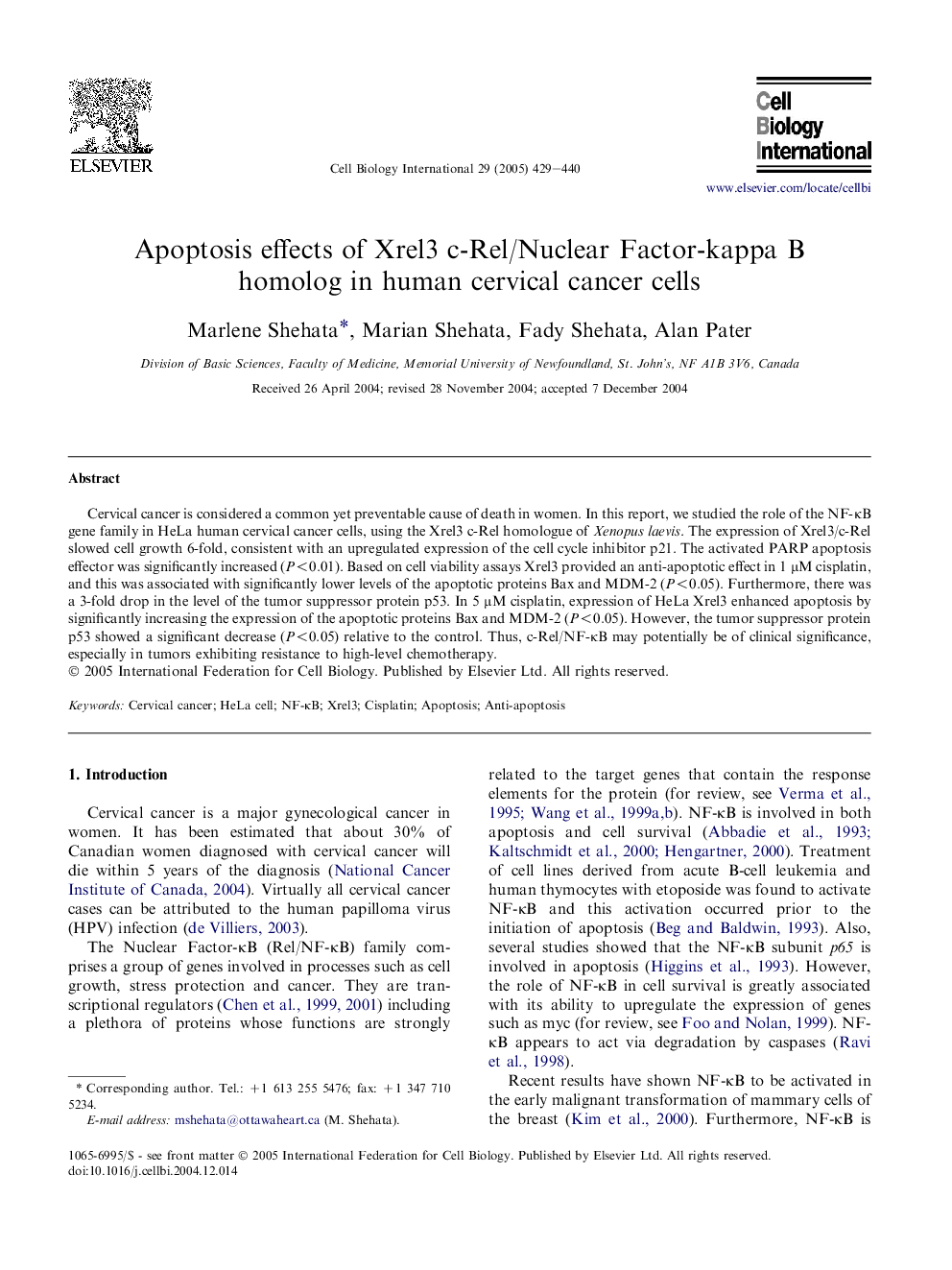| Article ID | Journal | Published Year | Pages | File Type |
|---|---|---|---|---|
| 10881861 | Cell Biology International | 2005 | 12 Pages |
Abstract
Cervical cancer is considered a common yet preventable cause of death in women. In this report, we studied the role of the NF-κB gene family in HeLa human cervical cancer cells, using the Xrel3 c-Rel homologue of Xenopus laevis. The expression of Xrel3/c-Rel slowed cell growth 6-fold, consistent with an upregulated expression of the cell cycle inhibitor p21. The activated PARP apoptosis effector was significantly increased (P<0.01). Based on cell viability assays Xrel3 provided an anti-apoptotic effect in 1 μM cisplatin, and this was associated with significantly lower levels of the apoptotic proteins Bax and MDM-2 (P<0.05). Furthermore, there was a 3-fold drop in the level of the tumor suppressor protein p53. In 5 μM cisplatin, expression of HeLa Xrel3 enhanced apoptosis by significantly increasing the expression of the apoptotic proteins Bax and MDM-2 (P<0.05). However, the tumor suppressor protein p53 showed a significant decrease (P<0.05) relative to the control. Thus, c-Rel/NF-κB may potentially be of clinical significance, especially in tumors exhibiting resistance to high-level chemotherapy.
Related Topics
Life Sciences
Biochemistry, Genetics and Molecular Biology
Biophysics
Authors
Marlene Shehata, Marian Shehata, Fady Shehata, Alan Pater,
